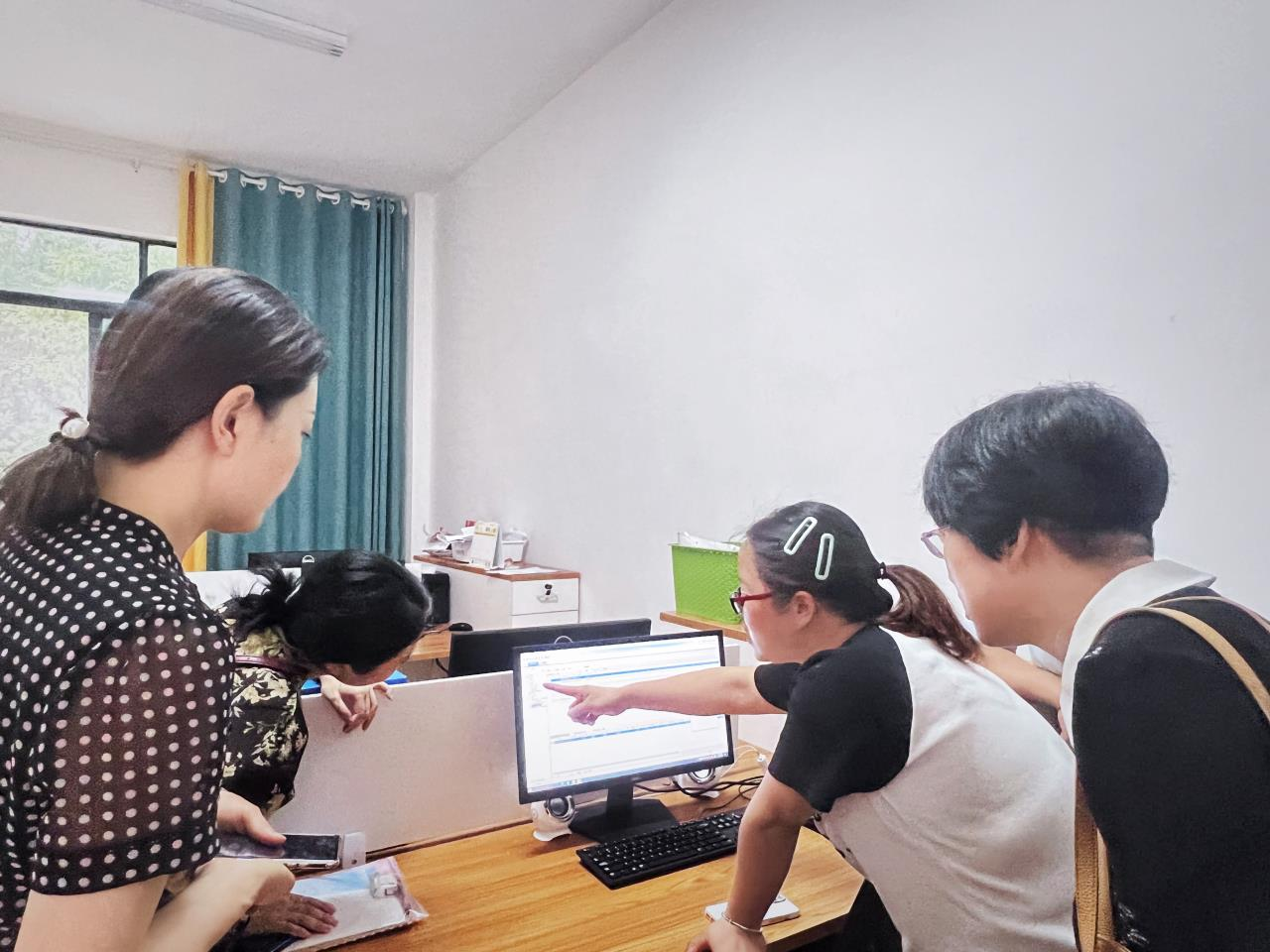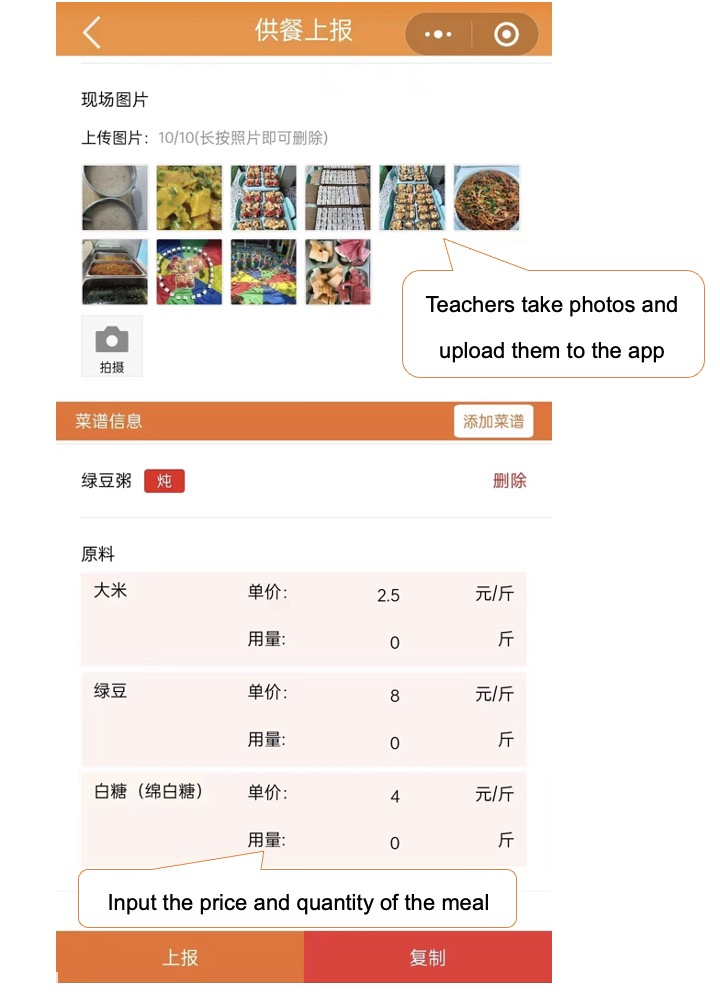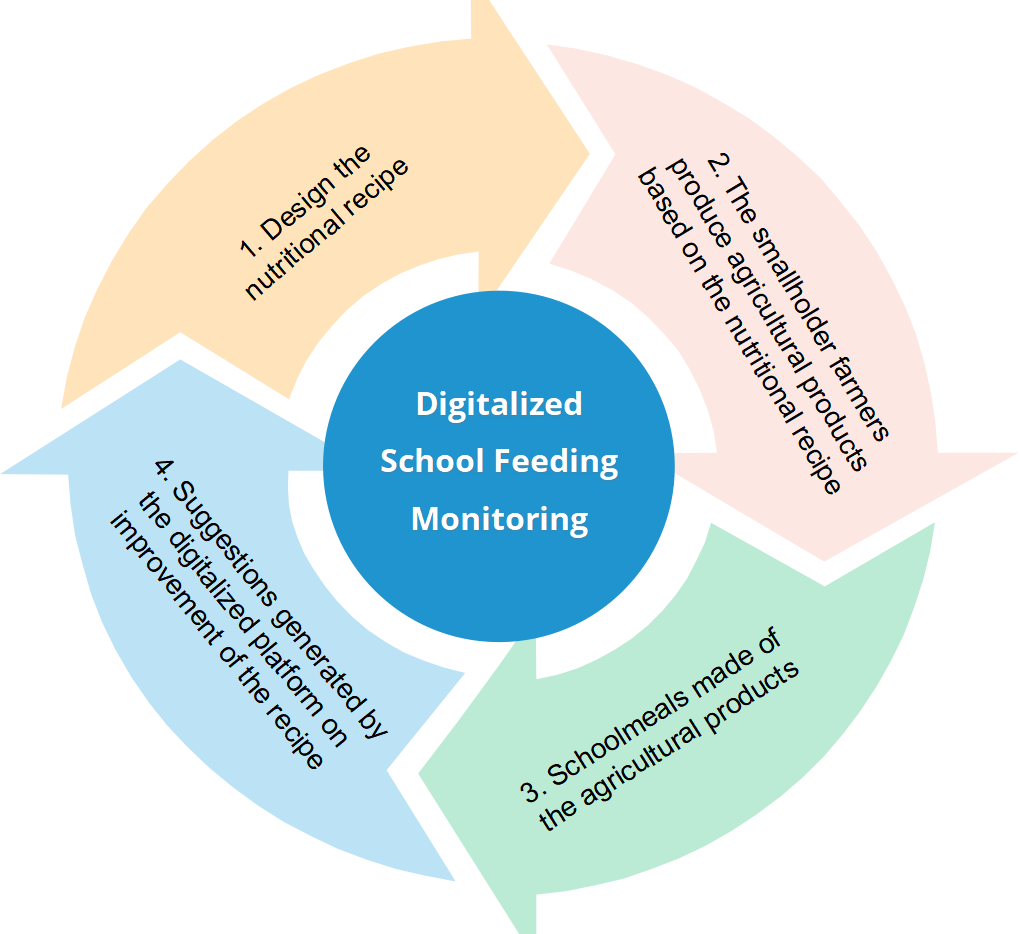I. Project Overview
Children's nutritional health has become an important issue in rural development and poverty alleviation in China. Based on the experience of the World Food Programme’s (WFP) global school meal programmes and in response to the needs of local development in China, WFP has been implementing pilot projects with the aim of improving the nutrition of preschool children in remote rural areas of China since 2018. These projects provide nutritionally balanced meals to children in kindergartens. However, traditional management approaches for school meals are facing many challenges such as the lack of transparency in fund management and difficulties in quantifying and evaluating the effectiveness of meal provision. To address these challenges, WFP collaborated with its partners at various levels to adopt innovative digital school meal monitoring solutions tailored to local situations.
II. Beneficiary Description
These solutions enable intelligent monitoring of fund usage and meal provision, covering over 70 beneficiary kindergartens in the pilot project areas, contributing to a more science-based and sustainable operation of nutrition improvement programmes, and promoting the healthy growth of children in remote rural areas.
III. Approaches and Methodology
WFP Preschool Nutrition Improvement Project in Sichuan province employs a student meals monitoring system, which is an excel-based software. It mainly presents information with forms and provides technical support from multiple perspectives for the smooth implementation of the school meals programme. The system includes five modules: (1) Food stuff Inward and Outward Module: To manage the inflow and outflow of food stuff in the kindergarten canteens, and achieve real-time recording and monitoring; (2) Children’s Attendance Management Module: To realize real-name registration management, and record the entry and exit information of children, ensuring the accuracy of the information; (3) Children’s Meals Statistics Module: To record in detail the daily meals of each child, providing data for the evaluation of the nutrition improvement plan; (4) Children’s Meals Cost Accounting Module: To calculate the cost of meals, providing accurate cost control for project management; (5) WFP Programme Fund Utilisation Audit Module: Through a four-level audit mechanism, it can supervise the flow of funds, ensuring the authenticity, security, and transparency of fund utilisation.

WFP Preschool Nutrition Improvement Projects in Guangxi and Hunan provinces, in collaboration with the China Development Research Foundation (CDRF), have applied the Sunshine School Meals Platform. This platform utilizes technologies including the Internet, big data, and information traceability to dynamically monitor the provision of school meals in kindergartens, providing robust assurance for children's nutrition. Beneficiary kindergartens report daily meal-related information, including ingredients used for each meal, menus, meal photos, and fund usage, to the platform via a smart phone APP or computer. The platform's backend analyses the kindergartens' menus, food intake, and nutrient intake against the standards of Chinese Dietary Guidelines for Preschool Children. It also conducts regional and national market price comparisons for ingredient procurement and generates nutritional meal data reports, identifying deficiencies and providing recommendations for school meals provision.


IV. Implications and Recommendations for Other Countries
Digital school meals monitoring solutions possess multiple advantages in supervising and evaluating nutrition programmes. Firstly, digitalized management enhances the safety of funds by ensuring that meals subsidies are directed towards children through intelligent monitoring and audit mechanisms, avoiding wastage and misappropriation. Secondly, the system helps schools better manage and plan food procurement and supply, reducing food waste and consequently cutting costs. Moreover, this system is conducive to children's nutrition and health through timely identifying and addressing problems of nutritional deficiencies and imbalances, thereby improving children's nutritional well-being. Additionally, digital supply management and automated data aggregation can facilitate the collection and analysis of large amounts of data, improving the work efficiency of frontline project management staff. It can also empower online guidance and monitoring of kindergartens in remote rural areas, assisting them and their canteen managers in making more informed decisions and providing effective data support to assess the outcomes of nutrition programmes, and further enhancing the management level of kindergarten canteens.
Digital school meals monitoring solutions can play a positive role in promoting innovative poverty alleviation and inclusive rural development. Digital supervision ensures transparency and enhances project management of the programmes, offering valuable solutions for nutrition programmes in rural areas. Further promotion and application of such digital systems will contribute to improving the nutritional health of rural children, achieving broader goals of equitable nutrition development, and facilitating human capital development for rural revitalisation.
For more information, please contact WFP China COE (wfpcn.coe@wfp.org)

Related Link:
WFP Preschool Nutrition Improvement Project In Hunan
http://www.wfpchinacoe.net/2022-08/24/content_78386019.shtml
http://www.wfpchinacoe.net/2023-09/06/content_112712106.shtml
Category
Digital School Meals Monitoring System: Promoting Children's Nutrition and Inclusive Rural Development
Contributor
Digital School Meals Monitoring System: Promoting Children's Nutrition and Inclusive Rural Development
Country
Case Study

